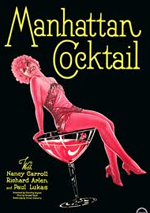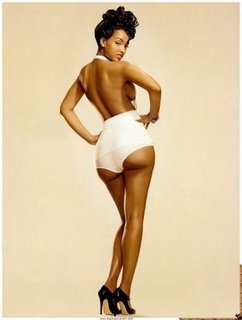This is my response to Making Space’s recent post on femme and femininity. You can read her whole post here.
It just never ever ever in a million gazillion years would EVER occur to me that ANY woman EVER EVER EVER EVER (have I emphasized this enough?) would voluntarily paint her nails or wear makeup every day. So I’m sorta confused about this. If you’re not doing it because you’re “supposed to” to look good for men, why the hell would you do it? And apparently there are ACTUALLY women out there who, regardless of orientation, LIKE to be all manicured and made up and wear heels and stuff like that. I find it exhausting to contemplate. I mean, have at it if you wanna, absolutely. But if you’re not trying to catch a man, and you CAN look however you want, well – I guess it just never occurred to me that some women would still WANT to do all that stuff to themselves.
I recognize that performing femininity can and often is heteronormative, but the idea that femininity serves only or primarily to “catch” a man is a shocking and troubling thought to me. What this seems to suggest is that wearing make-up or sexy/feminine clothes is so demeaning and onerous that no one in her right mind would actually choose to be feminine outside a heterosexual economy!
In the media we often hear the notion that women who perform rituals of beauty/femininity aren’t doing it for a man, but rather “for themselves.” As in, I didn’t get these implants for my husband; I got them so I can feel better about myself. This rhetoric is problematic because it never questions why women need the implants in order to feel better about themselves in the first place. It pretends that the boundaries of feminine performance are individual when in fact they are social and cultural.
This broader social context is crucial, in my view, because historically femininity has been ridiculed, demeaned, and treated as an emblem of passivity and subordination. I think it’s a feminist act of resistance to reclaim femininity and separate it from the male gaze–to show the world that women can be strong and smart and beautiful, all at the same time. And, as I’ve said here before, we need to recognize femme as a lesbian gender and source of power and pleasure for queer women. From this perspective, femme performance is quite different from conforming to traditional scripts of femininity (e.g. the “dumb blonde”) in order to attract men or bolster the male ego.
For those of you out there who are femme-identified, why do you do femme? Do you see femme as reframing traditional scripts of femininity?
Filed under: Lesbian & Queer Genders, Queer Femininity | Tagged: femininity and sexual power, feminism, gender performance, heteronormativity, pleasures of femininity | 24 Comments »






